Pastoral Interventions
Communication and Emotional Regulation
Information about the Communication and Learning Skills intervention
Communication is a key life skill. Being able to communicate your thoughts, needs and feelings is an essential part of education and of being able to get along with others. Being able to understand what you are hearing and what others are communicating is also vital.
We are aware that many young people within EOTAS have difficulties with communication. This intervention is intended to support students to develop their skills in this area, particularly through developing self-awareness, self-advocacy, and social thinking skills.

Self-awareness
Students are encouraged to develop a better understanding of themselves: their strengths, interests, what they love and value and their difficulties and barriers. Students are then supported to think about the links between thoughts, feelings and behaviours and how they can use positive thinking and ‘cool thoughts’ to influence their feelings and in turn their behaviour. Students move on to thinking about what helps them to learn and to communicate within a classroom and school environment.
Self-advocacy
It is important in life that we can speak up for ourselves and help other people to understand what is important to us and what help we may need. Students are supported to develop a ‘communication passport’ outlining key information about them including what helps them to learn and communicate within a classroom environment. This is intended to help students to share this information with adults who work with them.
Social Thinking
Students learn about how communication can break down between people, both within the classroom and within relationships. They are supported to think about what they can do to avoid these breakdowns in communication and how they can help to repair them when they happen. Students are supported to think about how they can ‘listen with their eyes as well as their ears’ to support them to read non-verbal communication. They learn about how they can seek clarification or ask for help when needed. Students are supported to think about expected and unexpected behaviours in different situations and how other people may feel about these.
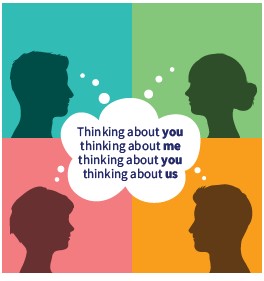
Throughout the intervention students are encouraged to think about their communication skills, how they can develop these and how they can help themselves to communicate better. It is hoped that by the end of the intervention, students will have a better understanding of the importance of communication, a better understanding of their own communication style and preferences and are better equipped to be able to use communication for learning and relationships.
Communication Passport
By the end of the intervention, each student will have a Communication Passport outlining all of the information that has been gathered and key information that students would like to share with others about themselves. Below is an example of what this will look like. This Communication Passport will be shared with adults who work with the student to help them to support the student better.
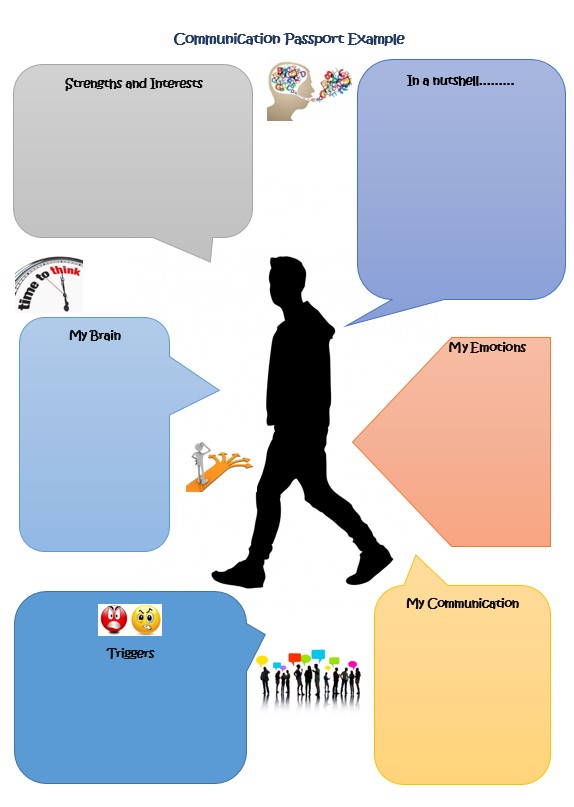
Links
https://www.socialthinking.com/free-stuff
Information about the Emotional Regulation Skills intervention
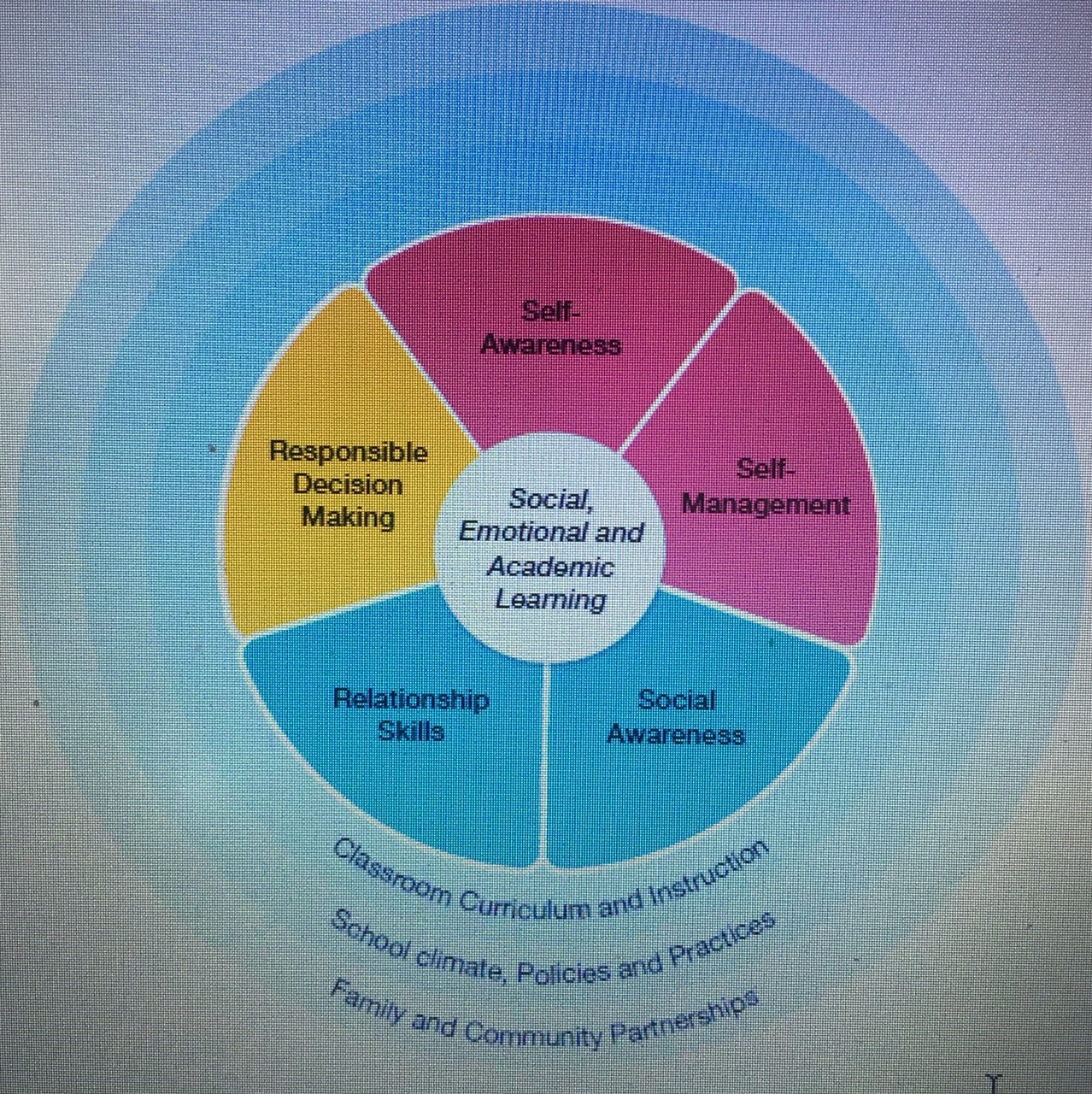
Social and emotional skills are critical to being a good student, citizen and worker. Being able to recognise your own emotions and those of others is vital to doing well in all areas of life. Being able to respond in an appropriate way to your emotions and to self-regulate is an important part of learning to manage in life. Many students within EOTAS have poor self-awareness and have not developed the skills of self-management and emotional self-regulation. The Emotional Regulation Skills course has been developed to support students’ learning in the areas of Self-awareness and Self-management, including emotional self-regulation (shown in red in the diagram above.)
What do we mean by self-awareness?
Self-awareness is concerned with the ability to recognise our emotions and thoughts, and to understand how they influence our behaviour. It also means being aware of our strengths and having a belief in oneself (‘self efficacy’.) Good self-awareness is associated with reduced difficulties in social functioning and fewer externalising problems, in particular aggression (Eisenberg, 2010.)
What do we mean by self-management and emotional self-regulation?
The terms ‘self-management’ and ‘self-regulation’ refer to the ability to understand and regulate our emotions, thoughts, and behaviours in different situations. It includes being able to:
• regulate or manage reactions to emotions like frustration, anxiety, or excitement;
• calm down after something exciting or upsetting;
• focus on a task; and
• control impulses.
The development of self-regulation skills enables children to behave in socially acceptable ways by, for example, giving them the ability to take turns, share, and express emotions (such as anger or frustration) in appropriate ways (Blair and Raver, 2015.)
During the Emotional Regulation skills intervention, students work on developing self awareness, including thinking about identifying their strengths and interests, what is important to them, what their goals are and what helps them.
Students then move on to thinking about emotions: what these are, when we have them, how they make us feel. They are supported to learn about the assault cycle, the fight/flight/freeze response and the system in our brains which is responsible for this.
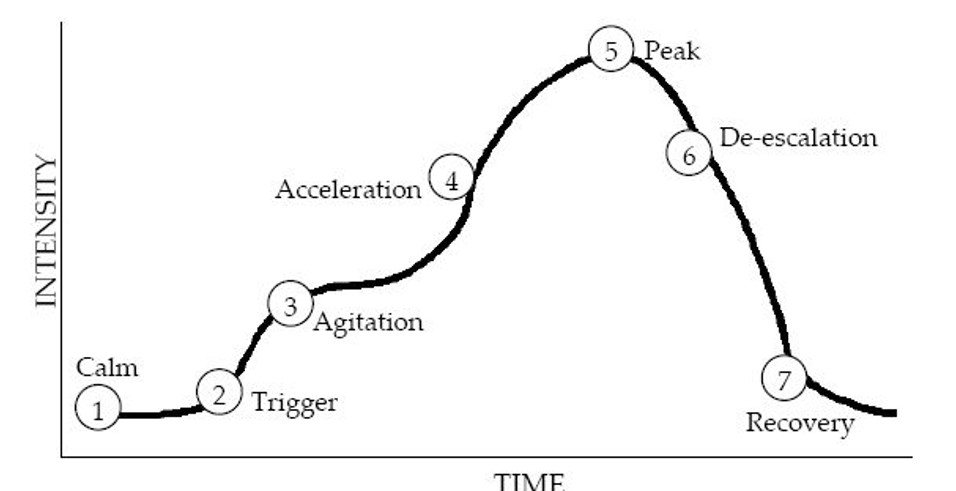
Students then think about the ‘Zones of regulation.’ They think about which emotions are in which zone, what makes them feel these different emotions, what causes them to move into the yellow zone or the red zone and what can support them to move back down into the green zone at these times.
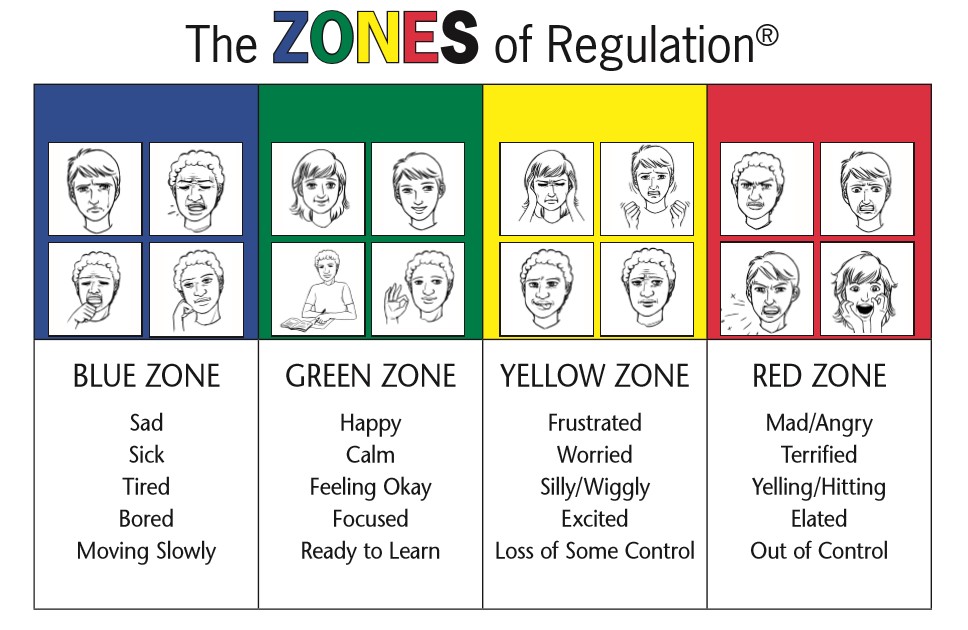
By the end of the intervention, students have been supported to develop their own ‘Zones of Regulation’ passport, which outlines how different zones look like and feel like for them, what the triggers are that cause them to move into the yellow and red zones and what they can do for themselves or what adults can do to support them to move back into the green zone.
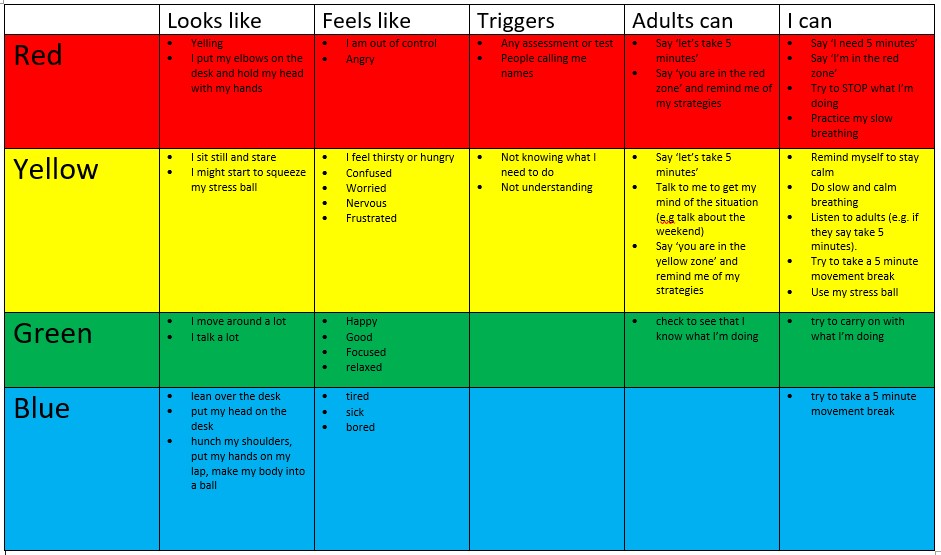
This Zones passport will be shared with adults who work with the student, to help them to support them to regulate themselves better within the school environment.
ELSA (Emotional literacy support assistant)
What is an Emotional Literacy Support Assistant (ELSA)?
There will always be young people in schools facing life challenges that detract from their ability to engage with learning. Some will require greater support to increase their emotional literacy than others.
ELSA is an initiative developed and supported by Educational Psychologists. It recognises that children learn better and are happier in school if their emotional needs are addressed. ELSA’s try to help children feel happy in school and to reach their potential educationally. Their aim is to help remove the barriers to learning and to have happy children in both school and at home.
We have two qualified ELSA’s at Fernbrook, with two more planned for Riverside. They have been trained and are regularly supervised by Educational Psychologists.
ELSA’s can help with:
- Recognising emotions
- Self-esteem
- Social skills
- Friendships & relationships
- Anger management
- Anxiety
- Loss and bereavement
ELSA's aim to establish a warm, respectful relationship with a pupil and to provide a reflective space where they are able to share honestly their thoughts and feelings.
The ELSA will plan their sessions very carefully and will always begin with an emotional check in - this is the opportunity for your child to talk about their feelings and worries.
Support sessions are planned to facilitate the developing of new skills and coping strategies that allow children to manage social and emotional demands more effectively. Sessions will be once a week and will usually last 30 - 45 minutes.
Supporting not fixing
ELSA's are not there to fix children's problems. What they can do is provide emotional support.
Change cannot necessarily be achieved rapidly and is dependent upon the complexity of the issues. For children with complex or long-term needs it is unrealistic to expect ELSA intervention to resolve all their difficulties, however, support will be designed to target specific aspects of a child's need.
Training and development of ELSA's is an ongoing process. The Educational Psychologist that works with our school has regular supervision sessions with our ELSA's, and is able to offer advice on suitability or nature of ELSA involvement in complex cases.
Thrive
Based on neuroscience and attachment theory, the Thrive Approach offers a dynamic, developmental, trauma sensitive approach that helps us interpret the behaviour and meet the emotional and social needs of our young people. The Thrive Approach can make learning more accessible more effective and more fun.
The Thrive Approach equips the pupils to work in either individual targeted ways or group targeted ways, to promote re-engagement with life and learning.
We have currently one Thrive Practitioner and we will be training additional members of staff throughout the new academic year.
The Thrive approach together with Thrive online helps us to support our pupils make better choices for better lives.
In the Thrive Approach we use a developmental model to help us understand how we develop socially and emotionally from birth through to adulthood. This model gives us the framework for understanding what healthy child development looks like in terms of behaviour and learning and clarifies what the role of adults should be in facilitating a child’s development at each of the different stages. In addition, the model gives us a lens through which to look at and interpret children’s behaviour, enabling us to identify the particular development needs being signalled by their behaviour and to choose appropriate, targeted interventions designed to meet those needs.
To find out more about the Thrive Approach please visit:
